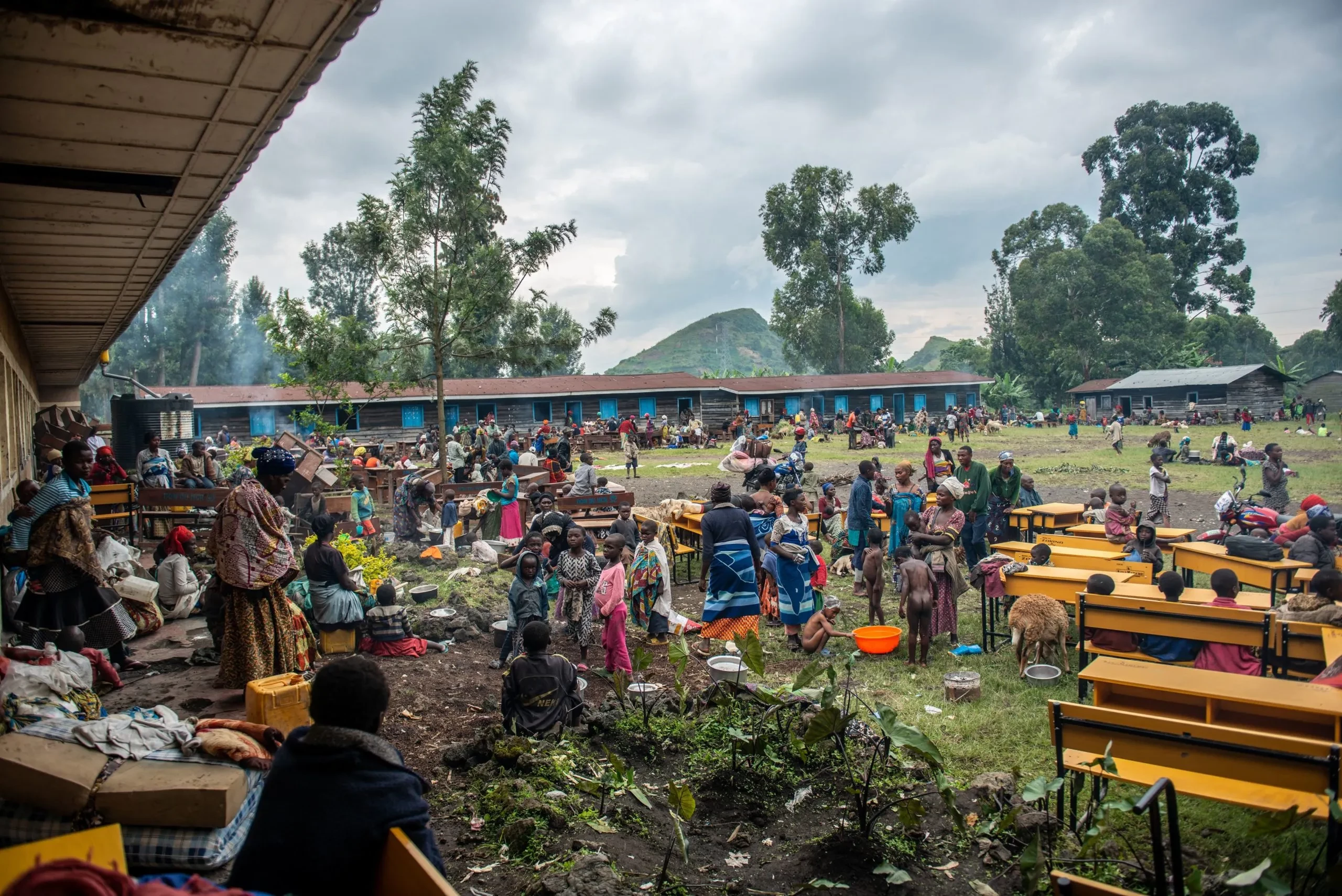With 20 civilians reported killed by militants linked to the Islamic State group and rebel combat spreading closer to the provincial capital Goma, eastern DR Congo appeared in turmoil on Tuesday.
News of the massacre spread during the morning after an attack overnight on the outskirts of Oicha town, in Beni territory, epicentre of the years-long rampage by IS-affiliated Allied Democratic Forces (ADF) in North Kivu province.
Originally fielding mainly Muslim Ugandan rebels, the ADF gained a foothold in the region in the 1990s and are accused of slaughtering thousands of civilians.
Since 2019, some ADF attacks in eastern DR Congo have been claimed by the Islamic State group, which calls the fighters the Islamic State Central Africa Province
"So far we have 20 bodies... tension is high, the ADF have once again plunged Oicha into mourning," mayor Nicolas Kikuku told AFP by phone on Tuesday.
"We have just placed 26 bodies in the morgue of Oicha's general hospital," said Darius Syaira, Beni territory's civil society representative.
He said the victims were 12 minors and 14 adults, and most were killed with knives.
Syaira also said tensions were high in Oicha, with demonstrators setting fire to humanitarian vehicles preparing to distribute food.
"We don't need humanitarian aid, but we do want security," one of the demonstrators said when asked why residents had attacked the trucks.
Police said the ADF were behind the murder of a honeymoon couple and their safari guide in one of Uganda's national parks on October 17. The IS claimed responsibility for the attack.
- 'We're having to flee' -
In the south of North Kivu, fighting between M23 rebels and pro-government armed groups moved closer to Goma on Tuesday, with sources reporting exchanges of fire within 20 kilometres (12 miles) of the city.
"There has been fighting in Kibumba since this morning," a security source who requested anonymity told AFP.
"The rebels are clashing with the wazalendo (groups loyal to the government). The M23 has just fired two bombs at us and we are retaliating", the source added.
"The situation is getting worse and worse. Both sides are exchanging heavy weapons fire," a resident said. "We're having to flee."
The M23, which has captured swathes of territory in North Kivu province since 2021, is just one of numerous militias holding sway over much of the region despite the presence of peacekeepers.
The conflict has recently intensified around Goma, home to over a million people, with M23 rebels and armed groups loyal to the government breaking a precarious truce.
Officially, the army is respecting the ceasefire, but witnesses say soldiers and pro-government loyalists are fighting together against the M23.
UN humanitarian agency OCHA said almost 200,000 people have had to flee their homes since October 1 in Rutshuru and Masisi territory, north of Goma.
The fighting, which is also affecting Nyiragongo territory closer to Goma, has claimed dozens of lives in recent weeks.
Independent UN experts, the Kinshasa government and several Western nations including the United States and France accuse Rwanda of backing the Tutsi-led M23 -- which Kigali denies.
In May the DRC accused its neighbour and the M23 of planning an attack on Goma, which borders Rwanda.
Government spokesman Patrick Muyaya on Monday spoke of "yet another incursion" by the Rwandan army into the DRC's territory last week, with "around 50" civilians killed by M23 rebels.
An M23 spokesman denied this on Tuesday.
Uganda and the DRC launched a joint offensive in 2021 against the ADF to drive the militants out of their Congolese strongholds, but attacks have continued.
An East African Community force has been deployed since the end of last year, but, like the UN force in the DRC, it has faced heavy criticism from Kinshasa for failing to stop the violence.


